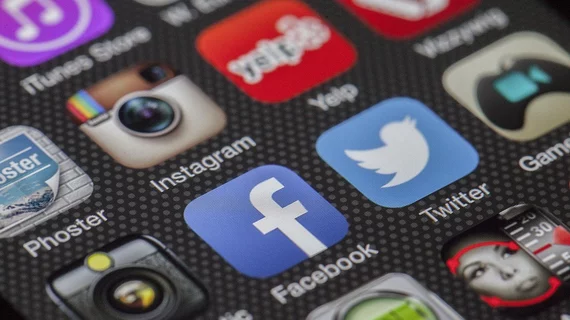Social media engagement, attendance drop when radiology conferences go virtual
Both social media engagement and attendance appear to drop when a radiology conference switches to an online-only format, according to new research published Thursday.
COVID-19 forced organizers to scrap numerous healthcare shows in 2020, hoping to keep attendees safe and limit the virus’ spread. Such gatherings began to make their triumphant return last year, including RSNA 2021 in Chicago. However, amid omicron’s ongoing spread, imaging associations have against started to cancel in-person events, opting for virtual events instead.
Showrunners can likely expect to see decreased engagement numbers, experts detailed in Insights into Imaging. Comparing the Radiological Society of North America’s virtual event in 2020 against its in-person 2019 version prior to the pandemic unearthed marked differences. Registered attendees were down about 43%, while there was a 39% drop in individual Twitter users talking about the meeting, and a 46% drop in total tweets.
“This study provides evidence for decreased Twitter activity and different discussed topics during a virtual compared to an in-person medical conference,” Nedim Christoph Beste, with the Institute of Diagnostic and Interventional Radiology at the University Hospital of Cologne, Germany, and colleagues wrote Jan. 20. “On top of that, this study presents that Twitter and conference attendance during medical conferences are highly related.”
For the study, researchers collected tweets and their corresponding metadata once a day during the 2019 and 2020 RSNA Annual Meetings. They also analyzed such information for the three days before and after the show, utilizing the Twitter application programing interface and a statistics program. Beste et al. targeted popular congress hashtags such as #RSNA20, #womeninradiology and #radxx.
Such social initiatives to promote female empowerment or diversity in the specialty also appeared to be down in 2020, the authors noted. Meanwhile, professional topics were less strongly influenced by the virtual nature of the conference. Future research may incorporate additional conferences to further prove Twitter’s usefulness as a surrogate parameter for attendance.
“We postulate that the decrease in social and personal topics during the virtual RSNA conference is caused by a lack of social interaction and interpersonal communication,” Beste and colleagues wrote. “In addition, this lack of social interaction and interpersonal communication reduced the opportunities to network, expressed by a smaller number of newly acquired followers among the Top 50 users during the virtual RSNA conference.

